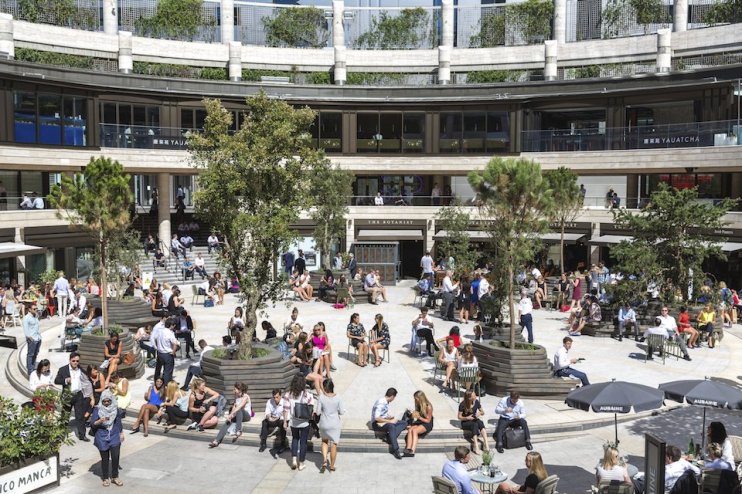London office market now a race for best in class, says British Land

The gap between the “best and the rest” is beginning to define the London office market, say property developers British Land this morning.
Alongside their full-year results, the firm that a “flight to quality” across banking, finance, professional and creative services would see rental returns on the best properties continue to look healthy, despite predictions of the demise of the commercial office market in the aftermath of changes to working patterns post-pandemic.
Older offices, however, would struggle to compete, they predicted.
British Land, the developers behind the new Broadgate Campus, described the macroeconomic background as “challenging” but said underlying profit was up 7 per cent on the year, with occupancy rates across the company’s properties now at 96.7 per cent.
Writedowns driven by rising interest rates saw the firm’s portfolio value drop 12.3 per cent.
That meant that while underlying profit was £264m, the technical loss after tax for British Land came to £1.03bn. The firm did however up its dividend slightly by 3 per cent.
“Ultimately, value in real estate is created over the medium to long term. We like to invest in supply constrained segments with pricing power, where we can be market leaders and leverage our competitive strengths to generate attractive returns,” said boss Simon Carter this morning.
“We already lead in campuses, where we continue to see strong demand for best in class space and are increasing our focus on life sciences and innovation sectors. We are consolidating our position as the largest owner and operator of retail parks where scale is an advantage, and we are building a unique portfolio of centrally located and highly sustainable urban logistics schemes in London.”
The firm has recently announced the planned development of a new logistics centre in Paddington as part of a wider development pipeline that the firm claims will deliver profit of £1.7bn in time.
The firm expects to see 2-4 per cent growth in retail park rental value and 4-5 per cent growth in the same metric for its London urban logistics centres.
The results come a day after LandSec’s market update, which again saw a significant writedown in the value of its portfolio.
“I’m pleased we have delivered a good operational performance despite the challenging macroeconomic backdrop,” said Carter.
